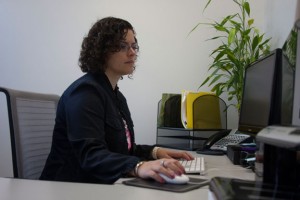Several alumni are voicing concerns that their opinions will not be accounted for in what some call a “closed-door” selection process for the next Ithaca College mascot.

The college announced a search for a new mascot in November to correspond with its branding initiative. In January, the task force selected three finalists, which were unveiled to the campus community earlier this month. Students, alumni, faculty and staff offered feedback on the finalists from April 7 to 21.
Raw data gathered from the survey will not be released to the campus community, Rachel Reuben, task force co-chair and associate vice president of marketing communications, said.
Reuben said releasing survey information is not a common practice, regardless of who conducts the survey.
“You don’t release raw data,” she said. “That’s why there’s professionals who know how to analyze this data.”
The task force will work with the Office of Institutional Research to evaluate the survey feedback, Reuben said. The task force will review all responses before it comes to its final decision over the summer, she said.
“We have been completely transparent and open through this process,” Reuben said. “This is what the task force is charged to do, and this is what we will be doing.”
Adam Mazzuto ’99 said he did not receive an email survey for the mascot and felt the process has not been inclusive.
“They’ve got a plan; they’re going to go through with it whichever way they like,” he said. “If there’s going to be alumni input, that’s going to be fine, but if it doesn’t gel with whatever their plan is, they really don’t mind.”
A few alumni also voiced concerns about never receiving a copy of the Mascot Selection Task Force’s survey before last Thursday’s submission deadline.
Chris Remillard ’03 said he did not receive a survey and he’s not aware of many details regarding the mascot selection process. All the information he’s gathered has come from the college’s website, not emails from the college or task force.
“I feel like the process has been kind of behind closed doors,” he said.
Derek Vintschger ’03 said he had received other mascot-related emails, but days after the survey’s launch, he still had not received a survey. Vintschger said he emailed the Office of Alumni Relations, the task force and Institutional Research, who said about two weeks ago he would be sent a survey. That survey never came.
“Ithaca has no trouble sending out emails for fundraising to everyone with an alumni email address,” he said. “But for some reason, the survey didn’t seem to make it to any of us.”
Despite alumni complaints, Reuben said there were no bad intentions.
“We have no ulterior motives even though these handful of alumni think we do,” Reuben said.
Reuben said the task force sent out more than 50,000 emails with a survey link to current and prospective students, faculty, staff and alumni.
During a two-week time period, Reuben said the task force received almost 10,000 responses, of which 5,640 came from alumni.
Govind Acharya, research analyst in Institutional Research, said some emails might have ended up in spam folders and there is no way to know how often that happened.
Though the survey can no longer be accessed, Christopher Pollock, a member of the task force and director of advancement communications, said he will still include email responses as part of the open-ended survey material for the task force to consider.
“I know there might have been some technical difficulties, but we certainly don’t want that to prevent them from being heard,” he said.
Reuben said the Division of Institutional Advancement has email addresses for about 38,000 of the 50,000 on file. To offer the remaining alumni a chance to give feedback, she said the task force posted a form on the mascot search’s blog March 17 to gather email addresses from alumni who don’t have an address on file. Reuben said the task force received about 100 addresses from the initiative.
Reuben said the task force will consider all feedback by the end of June and then make the final decision.
Reuben said there’s been a consistent effort to reach out and hear feedback from alumni.
“I don’t know what more we possibly could have done,” she said. “I feel we’ve gone above and beyond to try to include them because we absolutely do value what they have to say.”







